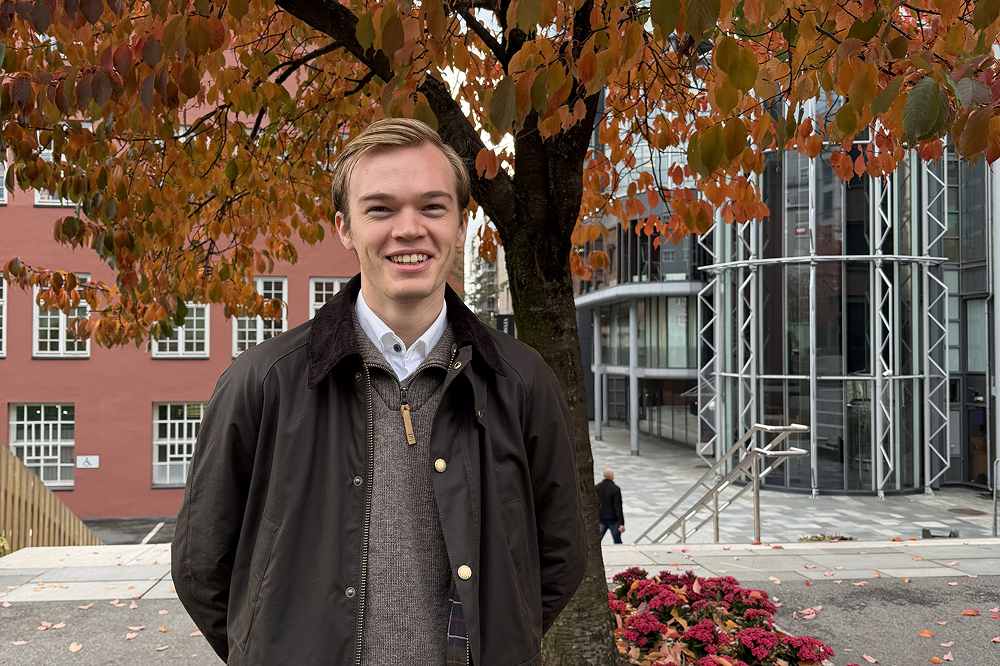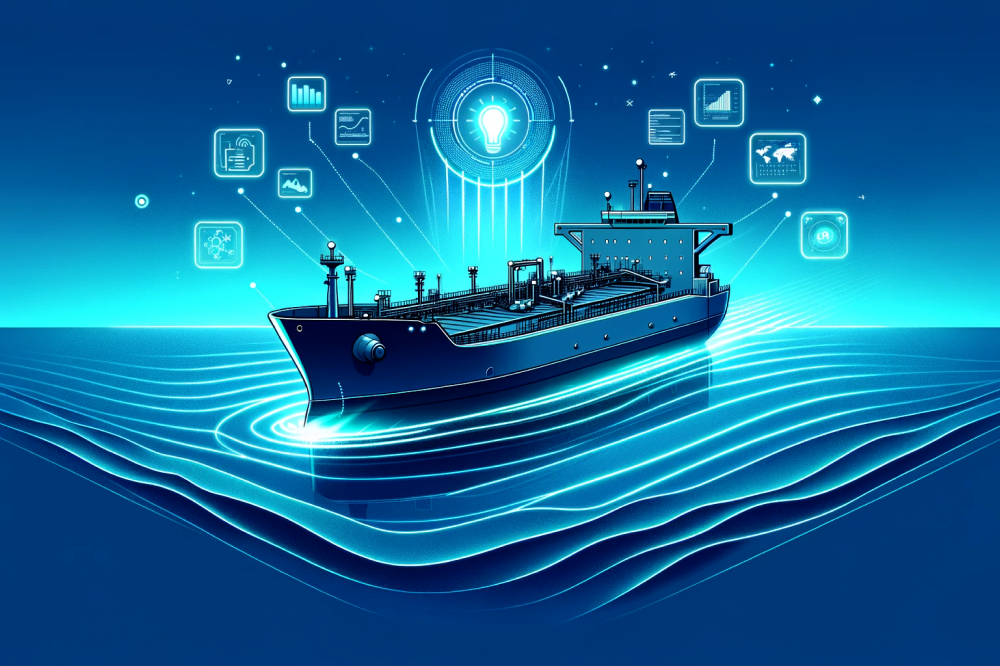
Winner of the Award for Best Master’s Thesis at Blekinge Institute of Technology
We make our way down to the open area in Vika Atrium. Marius, with his coffee mug firmly placed between his hands, is smiling form ear to ear. No wonder why! He has just got the message that he have won the prestigious award for best master thesis at Blekinge Institute of Technology.
Marius, congratulations on winning the award for your master’s thesis! Can you tell us a bit about what your thesis was about?
Thank you so much! My thesis focused on production planning, in other words, how to best plan complex industrial processes. We tested a new combination of techniques: a graph model, which makes it possible to view the entire planning process as a network, and explainable AI (XAI), which helps people understand why a model produces the results it does. This combination allowed us both to optimize planning and to build trust in the outcomes.
You touched upon it, could you elaborate a bit more on the innovative aspect of your approach?
First, that we used graph neural networks (GNNs) and XAI, and combined the two to this type of problem. That is something that has not been done before to my understanding. Moreover, many AI models are “black boxes”, but in our case, by combining the two, we were able to actually justify and show why the model suggested a particular plan. And, as I said before, that is crucial for industry to be able to trust the results.
What inspired you to choose this topic?
Honestly, it was a bit of a coincidence. I had been working on and off at NKT (the company the thesis revolves around), as an Operational Planner during my studies. I also had a great relationship with my professors who told me that they had a project going with this exact company. It then felt quite natural, and of course rewarding, to collaborate with a company I know for our thesis. It was actually one of my professors that mentioned this technique, and we thought it sounded like an exciting challenge.
Were you surprised by any of the results?
Yes, actually. What we built was a “proof of concept”. And even though we didn’t have time to test the entire production flow, planning errors were reduced by about 75 percent in the parts we did test. That was a clear signal that this approach has huge potential.
What was the biggest challenge along the way?
The data. We worked with massive amounts of time-series data from many sources, often with multiple versions of the same datasets. It took a lot of time to figure out what was relevant and how the data connected. I learned how important domain knowledge is. You can’t just throw data into a model, you really need to understand the processes and context first.
Blekinge Institute of Technology, located in Karlskrona, is renowned for its focus on digitalization and sustainability. Their majors focuses on society’s future needs and challenges and is carried out in close collaboration with society at large.
Could you tell us a bit about your Masters degree? What was it? and how did you end up pursuing this field?
I have a Master of Science in Engineering with a specialization in Artificial Intelligence and Machine Learning. When I started in 2020 AI was on everyone’s lips, and I’ve always been fascinated by data. My father is an economist, so I grew up surrounded by numbers, Excel, and statistics. In high school I started programming, and the combination of statistics, coding, and AI was a perfect match for me.
How was your experience with your master’s program?
It was intense, but incredibly rewarding. I gained a deep understanding of how AI works and got to test techniques on real-world problems. The most valuable lesson I took with me is the importance of understanding the sector you’re working in. Only then can you use data in a truly meaningful way.
Do you have any advice for students who are about to start their thesis?
The basic answer: start early! Haha. We were supposed to start in January, but actually got started in December. This gave us a lot of time to actually look into the problems we set out to solve. And don’t postpone the more "boring" tasks. They have to be done anyway.
Back in August, Marius became a new addition to the Maritime Optima-team, and there is no doubt we made the right choice by hiring him. With the knowledge and his eagerness to learn, combined with his positive attitude, he brings true value to the team and work environment.
Today you’re working at Maritime Optima. How do you use your expertise there?
At Maritime Optima everything revolves around data. We make complex shipping data understandable and useful for our clients. That can mean anything from classifying cargo on vessels to predicting how long a ship will have to wait in a port or in canals like the Suez. This insight gives shipping companies a stronger basis for decision-making, helping them save both time and costs.
Here at Maritime Optima it is important that everyone understands the industry we provide solutions to, what do you think of the maritime industry so far?
I already had a passion for the shipping industry and logistics before joining, so when I saw the job posting it actually felt like a perfect match. At the same time there is always more to learn, and I’m really looking forward to deepening my understanding of such a vital global industry.
And what do you enjoy most about your job?
That I get to be a bridge between advanced analytics and practical decision-making. I find it very rewarding to make data understandable for people who aren’t data experts. Like in shipping for example, they are experts at what they do, but by offering data that gives them insights and reduce repetitive tasks, we are able to help them by giving them time to do what really matters: providing great service, selling and negotiating.
On top of that, working at a startup with so motivated people is incredibly exciting. It is fast-paced, high ambitions, and everyone cares deeply about the product. You’re also given a lot of responsibility, and I’m learning new things all the time.
By now, it is clear that Marius takes great interest in AI, making us curious about what he thinks about the technology and what the future brings.
Do you feel that there are any common misconceptions about AI that you often come across, and wish people saw differently?
Hmmm... If there is one common misconception I see, it is a lot of people think that AI only started with chatbots like ChatGPT back in 2020. In reality, AI has been around since the 1950s. What was once considered AI, like simple sorting algorithms, is now so normal that we don’t even think of it as AI anymore.
How do you see AI developing over the next five years?
I don’t believe AI is going to take over the world, as some people fear. But it will make many repetitive and tedious tasks easier, freeing up people to focus more on creative and complex work. The practical, targeted use of AI is what’s going to matter most.
And, finally, just to go back to the topic of the award. Congratulations again! You were nominated for, and won an award for your thesis. What does the award recognize, and what does it mean to you?
The award is given to projects that show a high degree of creativity, originality, and practical relevance. It means a lot to me, I tend to be self-critical from time to time, like many others, and often feel like I could have done more. This recognition was a strong confirmation that the work was truly high quality it gave me a big boost of confidence.














